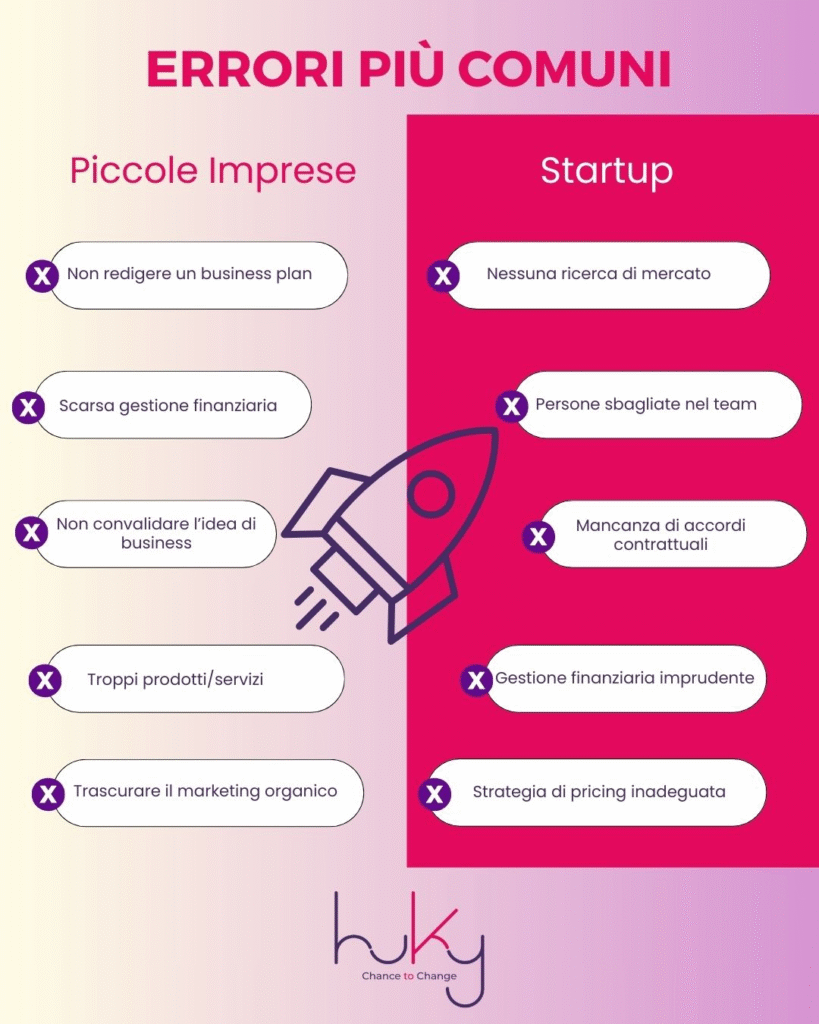Launching a new business is a bold choice—whether it’s a small venture with a solo founder or a few partners, or an innovative startup aiming for rapid growth and global scalability. Yet despite the initial excitement, risks are around the corner and many mistakes—though avoidable—are common.
Before diving into the most frequent errors, it’s important to clarify a key distinction:
- Small businesses are often created to build a solid, stable company, typically focused on a local or niche market, where gradual growth and financial sustainability are the primary goals.
- Startups, on the other hand, aim for innovative business models with the potential for rapid expansion and significant venture capital investment.
Despite these differences, some mistakes are common to both:
Most Common Mistakes in Small Businesses
(Source: Shopify, 2022)
- Lack of a detailed business plan
Starting without a business plan is like sailing without a compass. - Ignoring cash flow and profit analysis
Poor financial management can quickly lead to liquidity crises. - Failure to validate the business idea
You risk offering something the market doesn’t want or value. - Expanding the product/service range too quickly
This dilutes resources and creates confusion for customers. - Neglecting organic marketing
Relying only on paid advertising limits visibility and sustainable growth.
Most Common Mistakes in Startups
(Source: Holycode, 2023)
- Lack of thorough market research
Not knowing your market can lead to early failure. - Hiring the wrong people
A poorly matched team can hinder growth and operational efficiency. - **Avoiding formal contractual agreements
This can lead to legal issues and internal conflicts. - Spending too much, too quickly
Reckless financial management can drain funds before reaching break-even. - Inadequate pricing strategy
Incorrect pricing drives customers away and reduces profit margins.
👉🏻 Download the infographic on common mistakes when launching small businesses and startups!

Conclusion
Launching and growing a business or startup requires careful planning, strategic knowledge, and attention to detail. Avoiding these common pitfalls is essential to maximize your chances of success and reduce the risks involved in any entrepreneurial venture.
Thinking of launching your own business or startup? Contact the Huky team for expert consultation and operational support during the essential early phases—this can dramatically reduce your risk of failure and unlock your venture’s true potential.
